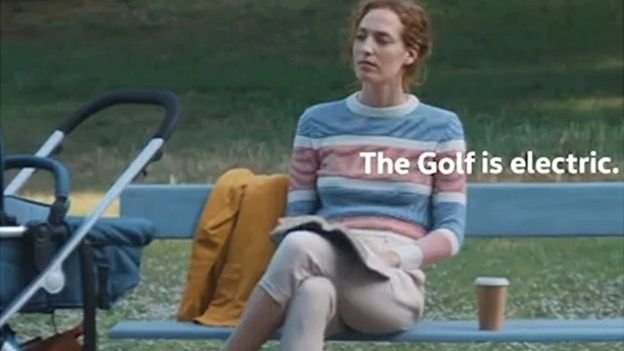Britain Banned This VW Golf Ad Because It Promotes Gender Stereotypes

Volkswagen has a new television ad for the eGolf in the UK. It's a short 30-second spot that depicts scenes both remarkable and unremarkable, including people camping, a person making a sandwich, someone doing laundry, people in a space station doing experiments, a person doing a long jump, and a person sitting on a park bench next to a stroller. Connecting the random scenes is a statement saying: when we learn to adapt, we can achieve anything. That seems like a simple, straightforward bit of advertising, but is there something more happening here?
According to an article from CNN, there is. The UK Advertising Standards Agency has reportedly banned this video spot from airing in Britain because it depicts potentially harmful gender stereotypes. Recent rules about gender depictions in advertising went into effect in the UK as of June 2019. Specifically, section 4.9 listed at the Advertising Standards Agency website reads: "Marketing communications must not include gender stereotypes that are likely to cause harm, or serious or widespread offence." Per CNN's report, three complaints were levied against this ad, which we have embedded at the top of this article for you to watch.
With this in mind, adding a bit more detail to our initial description of the commercial certainly paints a very different picture. The spot features a man camping on the edge of a cliff, a woman making a sandwich in a kitchen, an unidentified person doing laundry (though the arm shown does suggest a feminine appearance), male astronauts in a space station, a male amputee doing a long jump, and a woman sitting on a bench next to a stroller. Whether intended or not, men in this ad are depicted very differently from women, and it does portray common stereotypes.
We'll not dive into the politics of this issue, but we will highlight a comment on YouTube from this video that might encourage a larger dialogue. It was mentioned that these scenes could easily depict real-life situations. Does that mean real-life is stereotypical? Or, could such stereotypes be so ingrained in society that they have altered real-life in a negative way? We'd love to hear respectful opinions on all sides regarding this commercial.
Related News
